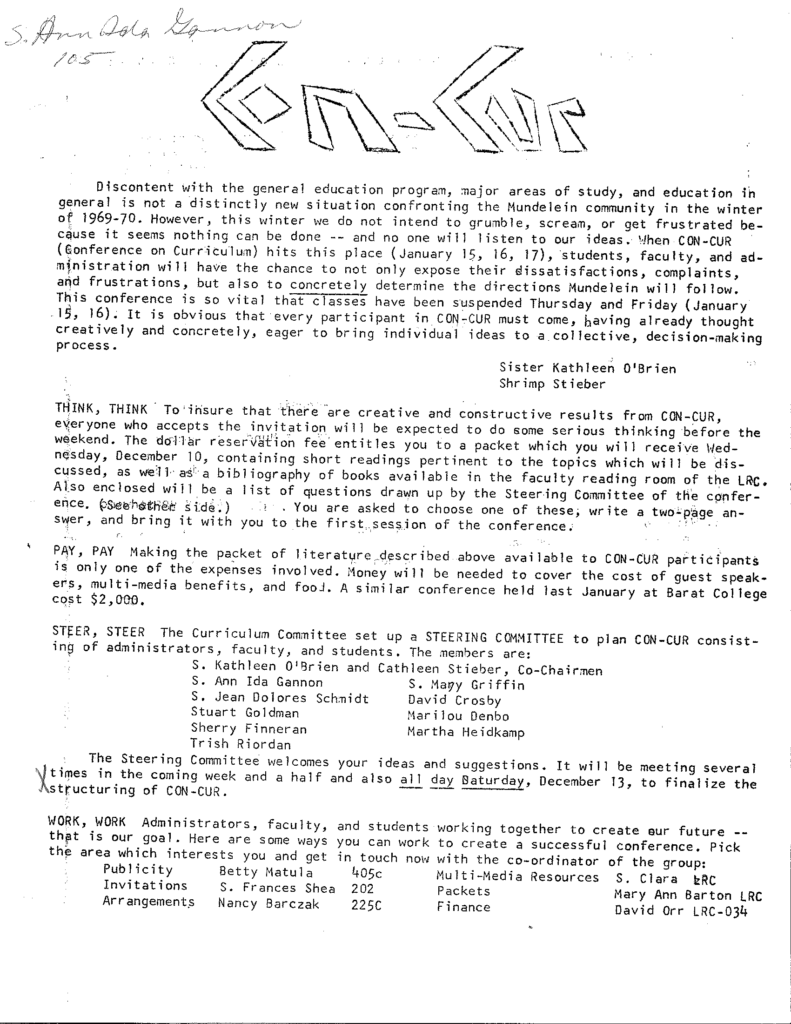At the end of the 1960s, Mundelein College* was in the midst of a cultural crisis. A changing social landscape accompanied by financial and enrollment struggles pushed the college to reevaluate their educational point of view. Historian Tim Lacy writes, “Catholic women’s colleges in the United States juggled a series of sometimes competing, sometimes complementary interests. Faculty and students juxtaposed their Catholic identity, the progress of feminism in American culture, pedagogical innovation, and the increasing presence of laity in administration.”1 Mundelein was far from the only Catholic women’s college to experience a cultural shift at the time, but the school’s reaction to this tension was particularly unique.
In the fall of 1969, the Curriculum Committee of Mundelein College’s Faculty Senate arranged a three-day Conference on Curriculum, known as Con-Cur, for the following January. The conference was designed specifically to receive and respond to the needs of the Mundelein community. The invitation for the event strongly emphasized that this was a conference for students, faculty, and administration to share their ideas for the future of Mundelein College. Classes were suspended at Mundelein on January 15th and 16th, the first two days of the conference, to encourage student participation.
The invitation for Con-Cur gives a clear idea as to what the organizers had in mind for this conference. Questions listed at the end of the invite ask, “How would you incorporate opportunities for non-cognitive learning, within or outside formal course structures?” and “How, concretely, would you structure a general education program?” Mundelein College was looking to adapt, and the school needed the input of its students to successfully evolve.

